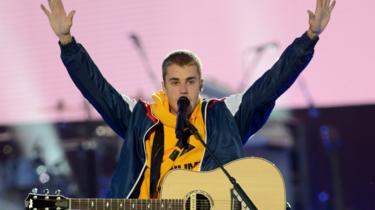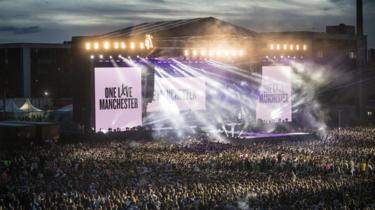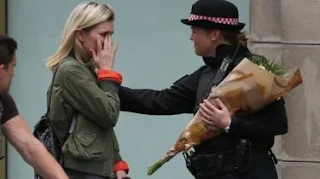Qatar row: Six countries cut links with Doha
Six Arab countries including Saudi
Arabia and Egypt have cut diplomatic ties with Qatar, accusing it of
destabilising the region.
They say Qatar backs militant groups including so-called Islamic State (IS) and al-Qaeda, which Qatar denies.
The
Saudi state news agency SPA said Riyadh had closed its borders,
severing land, sea and air contact with the tiny peninsula of oil-rich
Qatar.
Qatar called the decision "unjustified" and with "no basis in fact".
The unprecedented move is seen as a major split between powerful Gulf countries, who are also close US allies.
It comes amid heightened tensions between Gulf countries and their near-neighbour, Iran. The Saudi statement accused Qatar of collaborating with "Iranian-backed terrorist groups" in its restive Eastern region of Qatif and in Bahrain.
What has happened?
The
diplomatic withdrawal was put into motion by Bahrain then Saudi Arabia
early on Monday. The United Arab Emirates (UAE), Egypt, Yemen and Libya
followed suit.
SPA cited officials as saying the decision was
taken to "protect its national security from the dangers of terrorism
and extremism".
Saudi Arabia, the UAE and Bahrain have given all Qatari visitors and residents two weeks to leave their territory.
So far, there has been no sign of reciprocal moves by Qatar.
In the latest developments:
- The UAE has given Qatari diplomats 48 hours to leave the country
- Airlines from many of the affected countries, including Etihad Airways and Emirates, said they are to cancel flights to and from the Qatari capital Doha
- The Gulf allies said they had closed their airspace to Qatar Airways, which has suspended all its flights to Saudi Arabia
- Bahrain's state news agency said it was cutting its ties because Qatar was "shaking the security and stability of Bahrain and meddling in its affairs"
- The Saudi-led Arab coalition fighting Yemen's Houthi rebels also expelled Qatar from its alliance because of its "practices that strengthen terrorism" and its support of extremist groups.
Why has this happened?
While the severing of ties was sudden, it has not come out of the
blue, as tensions have been building for years, and particularly in
recent weeks.
Two weeks ago, Egypt, Saudi Arabia, Bahrain and the UAE blocked Qatari news sites,
including Al Jazeera. Comments purportedly by Qatari emir Sheikh Tamim
bin Hamad al-Thani criticising Saudi Arabia had appeared on Qatari state
media.
The government in Doha dismissed the comments as fake, attributing the report to a "shameful cybercrime".
Back
in 2014, Saudi Arabia, Bahrain and the UAE withdrew their ambassadors
from Qatar for several months in protest over alleged interference in
their affairs.
More
broadly, two key factors drove Monday's decision: Qatar's ties to
Islamist groups, and the role of Iran, Saudi Arabia's regional rival.
While
Qatar has joined the US coalition against IS, the Qatari government has
repeatedly denied accusations from Iraq's Shia leaders that it provided
financial support to IS.
Wealthy individuals in the emirate are
believed to have made donations and the government has given money and
weapons to hardline Islamist groups in Syria. Qatar is also accused of
having links to a group formerly known as the Nusra Front, an al-Qaeda
affiliate.
The SPA statement accused Qatar of backing these
groups, as well as the Islamist Muslim Brotherhood - banned in Gulf
countries as a terrorist organisation - and that it "promotes the
message and schemes of these groups through their media constantly".
Saudi Arabia itself is a key backer of Islamist rebels, including hardline jihadist groups, in Syria.
Qatar - Key facts
2.7m
population
-
2m of whom are men
-
11,437 sq km in size (4,416 sq miles)
-
79 years life expectancy (men)
-
78 years for women
Reuters
While on a visit to Riyadh two weeks ago, US President Donald Trump
urged Muslim countries to take the lead in combating radicalisation, and blamed Iran for instability in the Middle East.
"It
seems that the Saudis and Emiratis feel emboldened by the alignment of
their regional interests - toward Iran and Islamism - with the Trump
administration," Gulf analyst Kristian Ulrichsen told Reuters news
agency.
"[They] have decided to deal with Qatar's alternative
approach on the assumption that they will have the [Trump]
administration's backing."
Saudi
Arabia, too, has been accused of funding IS, either directly or by
failing to prevent private donors from sending money to the group -
allegations it denies.
In recent days, British Prime Minister
Theresa May has also come under pressure from election rivals to publish
a report thought to focus on the funding of UK extremist groups by
Saudi Arabia.
What has been the reaction?
Qatar,
which is due to host the football World Cup in 2022, was critical of
the decision. The foreign ministry said the decisions would "not affect
the normal lives of citizens and residents".
US Secretary of State Rex Tillerson, speaking in Sydney, urged the countries to resolve their differences through dialogue.
Iranian
foreign ministry spokesman Bahram Qasemi said there was a need for
"transparent dialogue and diplomacy", adding: "No country in the region
will benefit from the heightened tension."
Qatar's stock market closed down 7.27%.
One of the likely knock-on effects is on food stability: about 40% of Qatar's food is believed to come by lorry from Saudi Arabia.
The Doha News newspaper reported that people had rushed to supermarkets to stock up on food and water.
Why this decision, and why now? - Alan Johnston, BBC Middle East analyst
There have long been tensions not far beneath the surface. Qatar has often seemed out of step with its neighbours.
It
has tended, for example, to side with Islamist forces in the Middle
East - like the Muslim Brotherhood, which is reviled by the Saudis and
the current Egyptian leadership.
Past efforts by the neighbours to
pull the Qataris into line have had limited impact. But now Doha has
suddenly come under much greater and more co-ordinated pressure.
The
neighbours have been given new confidence by President Trump's approach
to the Middle East. The Saudis and the Emiratis feel they have his
support, and that now is the time to solidify the Gulf camp's approach
to the challenges they see around them.
They believe this is the moment to make clear to the Qataris that their divergent views will no longer be tolerated.
And right now this small country's rulers will probably be feeling very lonely indeed.
BBC NEWS
























